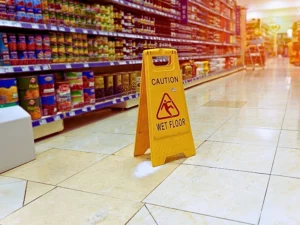Las Vegas recently saw record-setting rainstorms and many drivers were unprepared for the downpour. According to the Review Journal, the valley received 0.46 inches of rain in one night, demolishing the previous record of 0.29 that was set in 1949. Due to the uncommon amount of rainfall, the Nevada Highway Patrol responded to 143 accidents in just 10 hours. The average weekly total that the NHP usually responds to is 36 crashes. A car accident attorney in Las Vegas is aware of the serious accidents that can occur on Nevada’s slick roads following a rainstorm. To avoid accidents, motorists should follow these four precautions when the rain begins:
Regularly change out windshield wipers
The hot, dry heat that bakes the valley for a large portion of the year is often damaging to the plastic and rubber that often comprise windshield wipers. The rubber is particularly vulnerable to the heat and will crack and break easily if not properly maintained. Rain often comes to Las Vegas in brief heavy downpours. To ensure that they are not caught in a serious storm with little to no visibility, motorists should check their wiper blades along with the rest of their vehicle on a monthly basis to determine whether the blades need to be replaced.
Drive at a reasonable speed
A car accident attorney in Las Vegas often sees drivers who fail to drive appropriate speeds in wet weather. Las Vegas receives so little rain over the course of a year that the roads accumulate a thick layer of grease, oil and engine fluids. When it rains, these slippery substances mix with the water and take many hours of constant rain to be washed away. This can make it difficult for tires to gain proper traction. To increase traction and avoid a collision, motorists simply need to slow down.
Never cross running water
One of the cardinal rules of wet weather in the valley is to never cross any sizeable amount of accumulated or running water. Even a seemingly small area can be deep enough to cause a vehicle to lose traction and be swept away. If motorists cannot tell how deep standing water is, they should always choose another route to avoid a potentially deadly situation.
Never tailgate
While tailgating is a bad idea no matter what the weather is like, tailgating in wet road conditions is an especially dangerous practice. According to 21st Century Insurance, visibility is lower in a rainstorm, so it may take motorists a little longer to respond to a change in the traffic ahead of them. Additionally, when the roads are wet and slick, cars can require up to three times the usual stopping distance. Those who have been injured in an accident can contact a car accident attorney in Las Vegas. They may be able to help families recover much needed compensation.




